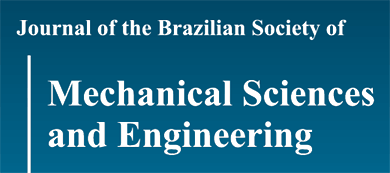The machining of titanium alloys poses several inherent difficulties owing to their unique mechanical properties and cutting characteristics. Finite element (FE) simulations have reduced the burden of extensive experimental trials in understanding the deformation behavior and optimize the cutting process. The FE code relies on the qualitative nature of inputs such as material flow stress model, friction conditions, fracture criterions and the accuracy of the modeling process. The aim of this paper is to assess the performance of four material model sets of the Johnson-Cook (JC) constitutive equation in modeling the deformation behavior of Ti6Al4V alloy. The FE output at steady state conditions is compared with results from orthogonal cutting experiments on a tube of the work material. The effect of the parameters of the JC law and the capabilities of the constitutive equation are analyzed. The FE model is excellent in predicting the effective stress, strain and temperature, but produces marginal deviations in cutting force and chip morphology predictions and under predicts the feed forces. The material model constants computed through an evolutionary computational optimization process and those with conditions similar to machining produced good correlation with experiments.
titanium alloys; material constitutive models; orthogonal machining process; finite element simulation






























